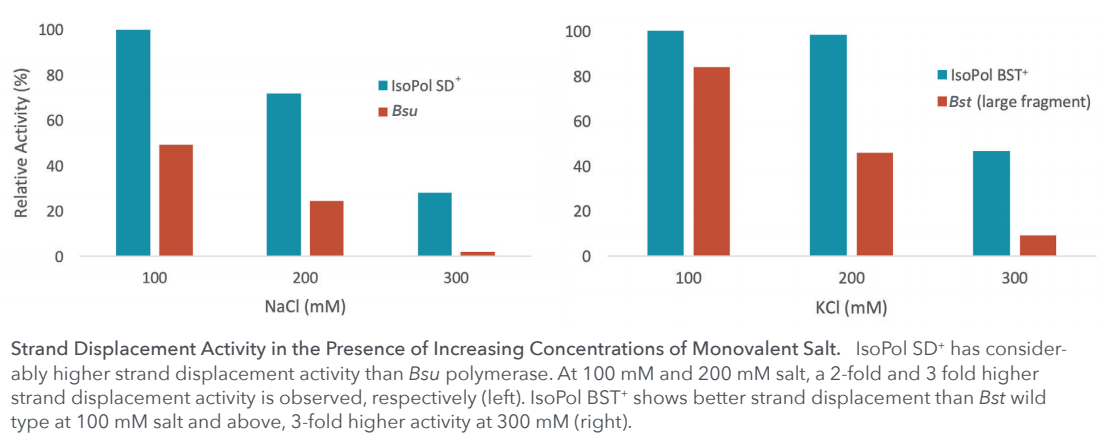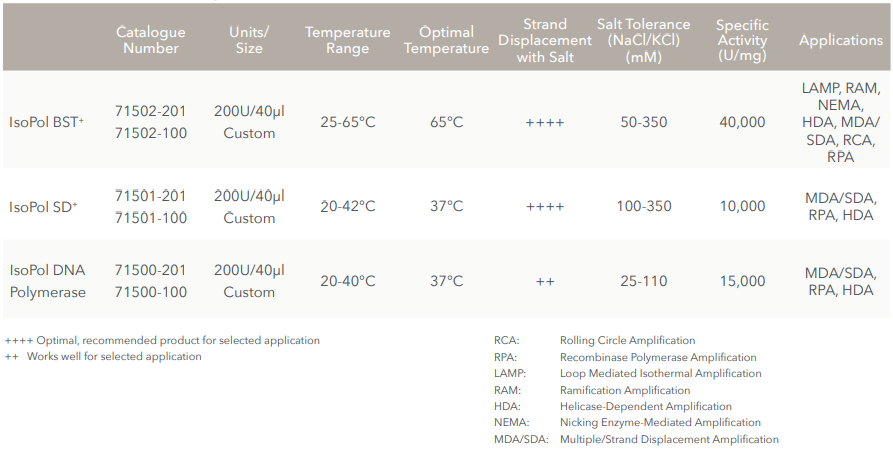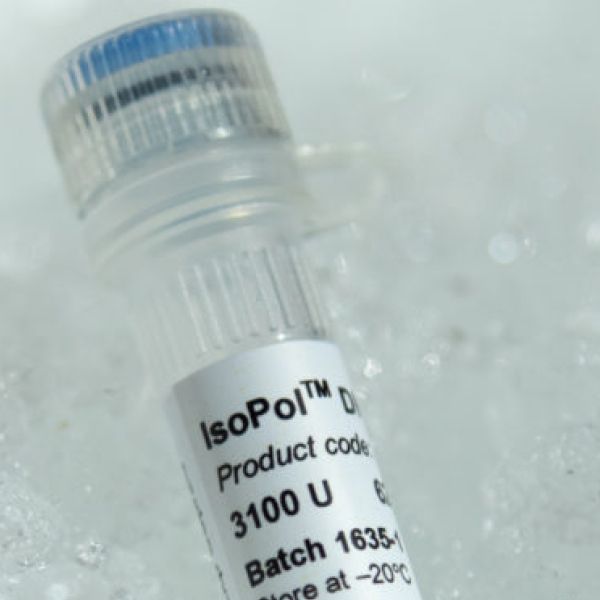IsoPol DNA Polymerase
IsoPol DNA Polymerase
IsoPol™ is a DNA polymerase, active at ambient temperatures. It exhibits no 5’-3’or 3’-5’ exonuclease activity. Isothermal Polymerase has high processivity and strong strand-displacement activity and can be heat inactivated at temperatures above 50°C.
IsoPol™ SD+ is a DNA polymerase with stronger strand displacement and higher salt tolerance, compared to ArcticZymes first IsoPol™.
IsoPol™ BST+ is a heat-tolerant Bst polymerase (large fragment) with enhanced strand-displacement activity. IsoPol™ BST+ is active from 25 to 65°C. It is lacking 5’-3’- and 3’-5’-exonuclease activity.
IsoPol Isothermal Polymerases
The IsoPol™ family of isothermal polymerases was developed to address the stringent molecular needs of isothermal sequence-specifc amplifcation applications in molecular research and diagnostics. Engineered on the backbone of DNA Pol I polymerases with a high degree of strand displacement activity, IsoPol enzymes were designed using directed molecular evolution technology to create unique homologues with high salt tolerance, a more fexible temperature range, and an even greater strand displacement activity, to meet the demands of evolving isothermal applications.

Reaction Temperature
Many diagnostic applications such as loop-mediated isothermal amplifcation (LAMP) or nicking enzyme-mediated amplifcation (NEMA), currently require elevated temperatures (> 50°C) and, for these, a thermophilic DNA polymerase with high temperature tolerance is desired. IsoPol BST+, an in silico designed homologue of Bst DNA Polymerase (large fragment), was engineered with enhanced strand displacement activity and high salt tolerance, while maintaining thermostability at 65°C. Increasingly, molecular diagnostic testing requires functionality at moderate temperatures. IsoPol SD+ and IsoPol DNA Polymerase are ideal for amplifcation at temperatures between 20°C and 37°C.
Inhibitor Tolerance
Minimally processed samples that contain impurities such as salt or serum can interfere or inhibit the polymerase amplifcation process. IsoPol BST+ and IsoPol SD+ were specifcally designed to tolerate high salt concentrations (up to 350 mM) over wild type DNA Pol I polymerases. IsoPol SD+ and IsoPol DNA Polymerase possess high serum tolerance. Up to 80% activity in the presence of 10% human serum has been observed with IsoPol DNA Polymerase. High salt tolerance also allows for fexibility where multiple enzymes with distinct buffer conditions are required, such as with helicase-dependent amplifcation (HDA) or NEMA.
IsoPol Isothermal Polymerase Selection Guide

ArcticZymes IsoPol enzymes possess 5´→3´ DNA polymerase activity, but lack 5´→3´ and 3´→5´ exonuclease activity. Optimal performance is achieved in a pH 8.5 buffer supplemented with 4-6 mM MgCl2 and 100-350 mM salt (IsoPol BST+ and IsoPol SD+) or 25-110 mM salt (IsoPol DNA Polymerase). One unit is defned as the amount of enzyme that will incorporate 10 nmol of dNTP into acid insoluble material in 30 minutes at 37°C for IsoPol DNA Polymerase and IsoPol SD+ and at 65°C for isoPol BST+.


